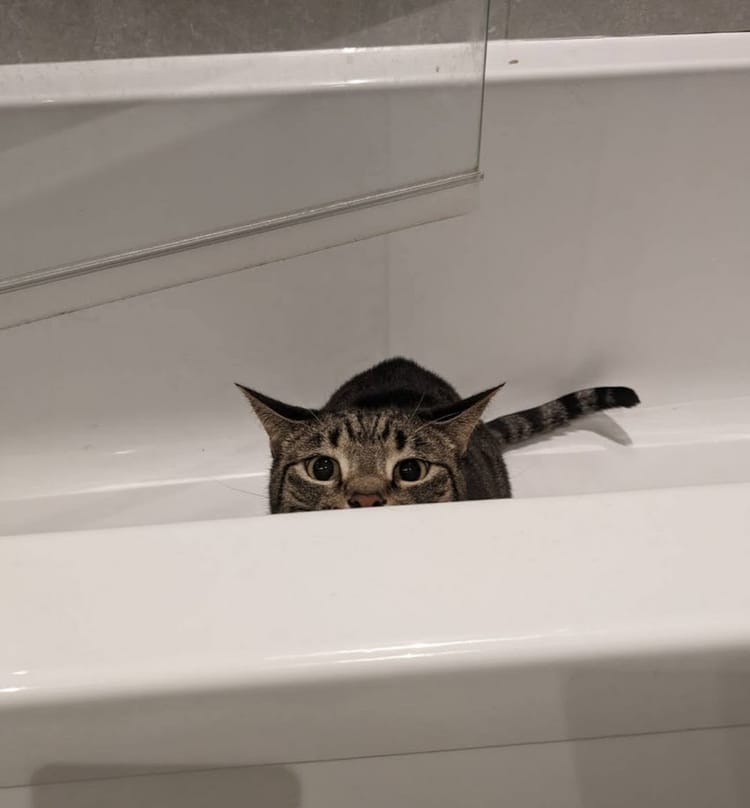Invisible luck, time management, and raunchy pot-plants

Hello loves! There have been so many bank holidays that I don't even know what day it is any more, and I'm feeling slightly wistful that I wasn't able to dance with my Cape Town friends at Afrikaburn last week (I've comforted myself by rereading Matthew Barge's eternally hilarious "I did not go to Afrikaburn: a Survivor's Tale"). But here are five things that did make my week.
1. Time management for mortals

I didn't know how badly I needed to read Four Thousand Weeks: Time and How to Use It by Oliver Burkeman. It's kind of an anti-productivity book, an argument against how we allow ourselves to feel endlessly guilty about infinite to-do lists and lose sight of the single most important thing we should remember about our time: it's astoundingly brief. Four thousand weeks, or eighty years, is all most of us can hope for on this earth. That has to be the starting point for any discussion of time "management".
Productivity is a trap. Becoming more efficient just makes you more rushed, and trying to clear the decks simply makes them fill up again faster. Nobody in the history of humanity has ever achieved 'work-life balance', whatever that may be, and you certainly won't get there by copying the 'six things successful people do before 7 a.m.' The day will never arrive when you finally have everything under control - when the flood of emails has been contained; when your to-do lists have stopped getting longer; when you're meeting all your obligations at work and in your home life; when nobody's angry with you for missing a deadline or dropping the ball; and when the fully optimised person you've become can turn, at long last, to the things life is really supposed to be about. Let's start by admitting defeat: none of this is ever going to happen. But you know what? That's excellent news.
The real problem, he says, isn't our limited time, but that we've all inherited a set of ideas about how we're supposed to use our limited time, and we put things on a never-ending to-do list to avoid actually making choices about what we want - an idea that parallels beautifully with what I've learned about money. I'm reminded of my favourite bit of throw-pillow wisdom: "You can do anything, but not everything."
I feel laughably called out by this book, as someone who undoubtedly tries to deny all difficult feelings by creating over-elaborate productivity systems (my therapist once banned me from making to-do lists for a month). Burkeman, too, is a productivity-geek in recovery, and he's insightful about both the systemic forces that trap us into feeling like we have to DO ALL THE THINGS, and the psychological ones.
It's a funny, wise, and deeply motivating book, and I highly recommend it for anyone feeling panicked about not having enough time.
2. Sneak-peak
I've been on a little self-publishing adventure recently (aided by my brilliant friends at Electric Book Works) and having way too much fun geeking out about paper weights, book metadata and spine widths. I'll be dropping this VERY EXCITING thing next week (fingers crossed). Head over to Instagram for a sneak-peak.
3. First Draft Pro

Speaking of writing adventures, my friend Tarryn has just launched the book-writing app of my dreams: First Draft Pro. Imagine if Google Docs and Scrivener had a baby, and that baby cheered you on whenever you hit your writing goals.
Things I love about it:
- It's all cloud-based so you'll never lose your work.
- It's collaborative, ideal for working with editors or co-writers.
- There's an outlining tool so you can plan your plot in advance, or just write it as you go, and it's easy to shuffle scenes or chapters around later.
- You can store notes and link them to specific lines in the manuscript, or to whole chapters.
- It looks delicious. I'm excited to open it up every day.
I've been using it for new novel I'm working on, trying to have a first draft done by the end of June (EEEEEEEK). I find the daily goal tracker especially motivating.

Fellow writers, sign up for a free 14-day trial here.
4. Is success luck or hard work?
I'm a big believer in the fact that success takes hard work, and extraordinary luck. So I adored this video from Veritasium that puts this idea to the test, and unpacks some of the psychological biases that make us blind to our own luck.
I had two lightbulb moments watching this video:
- The more competitive a challenge is, the luckier you have to be to win. He demonstrates this with MATHS by creating a simulation of NASA astronaut applicants.
- The more successful you are, the more you're likely to be deluded into thinking the world is fairer than it is. This isn't because successful people are evil people, it's just that they were luckier than most people, and our luck is less visible to us than our own actions are. Unfortunately, this means that the people who have the most power in the world (business leaders, politicians) are also likely to have the least accurate assessment of how it works.
"We're unaware of our good luck because, by definition, it's not something we did."
Acknowledging our luck (and training ourselves to see it) gives us a more accurate view of reality, can help us to make a truly fairer world, and makes us happier (because it makes us grateful). But, ironically, deluding ourselves into thinking we have more control over our lives than we do can probably help us be more successful. It's a paradox!
5. A raunchy poem about my pitcher plant
Lastly, I have this extremely lovely carnivorous pitcher plant and I wrote a love poem on its behalf.

Honey gland oiled rim
Slick lips
So simple to slip
Right inside the cavity,
Syrup pitcher
Lined with glide-hairs, wax-scales,
Try nose your way out but
I’m false exits, smooth traps.
Come on in, the water’s sticky,
Squirming,
An acid stomach.
Thanks, you’re delicious.
Hat-tip to my buddy Yellow Sam (to differentiate them from all the other excellent Sams in my life) who challenged me to write an Oulipo poem by rolling dice to determine the line-lengths. And also said the poem had to be steamy. I hope you'll agree that I followed the brief.
Wishing you plenty of time to do things you love (and write poems),
Sam





Member discussion